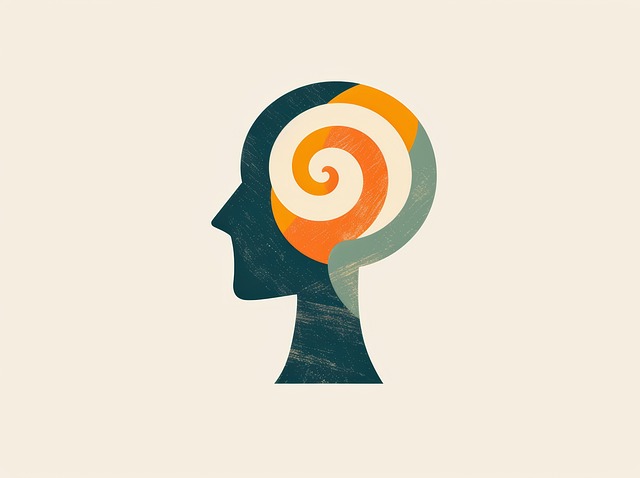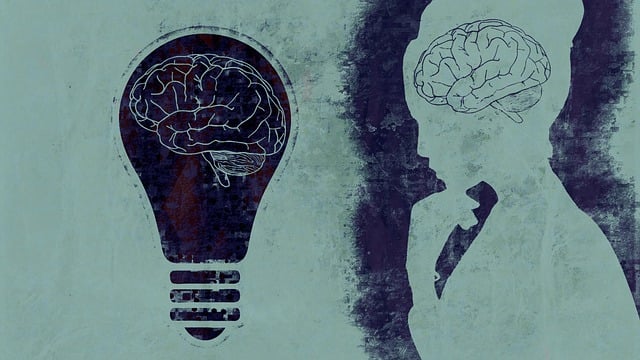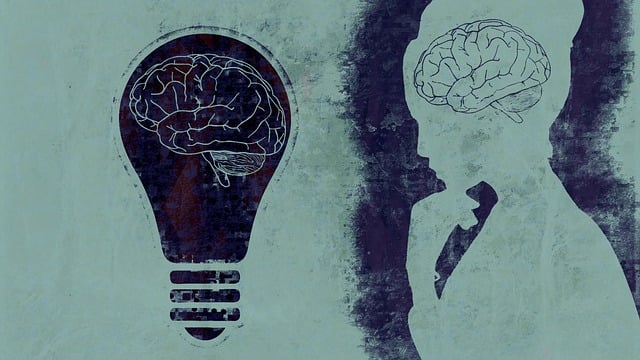Emotional intelligence (EI) development in early childhood is crucial for lifelong social interactions and stress management. Research shows that targeted interventions, like those offered through Stress Management Workshops Organization, equip children with emotional awareness and coping strategies. Early signs of stress in kids include behavioral shifts and physical complaints, which can be addressed through timely therapy and tailored workshops. Encouraging self-awareness exercises and mental wellness coaching programs empowers children to manage their emotions, fostering holistic development. Integrating play therapy and mindfulness practices teaches young children stress management skills, promoting healthier relationships and improved emotional resilience as they grow up.
Emotional intelligence (EI) is a powerful tool for young minds to navigate life’s challenges. This article explores the profound impact of EI development in children, focusing on early identification of stress and effective strategies for building emotional literacy. We delve into the significance of understanding EI as a key component of holistic child development and its role in fostering resilience. Additionally, we present therapy techniques tailored for young children to manage stress, offering valuable insights for parents, educators, and mental health professionals.
- Understanding Emotional Intelligence and Its Impact on Young Minds
- Identifying Stress in Children: Early Signs and Symptoms
- Strategies for Building Emotional Intelligence in Kids
- Integrating Therapy Techniques for Effective Stress Management
Understanding Emotional Intelligence and Its Impact on Young Minds

Emotional intelligence (EI) refers to an individual’s ability to recognize, understand, and manage their own emotions, as well as empathize with others’ feelings. For young minds still developing emotional awareness, fostering EI is akin to planting seeds for a lush garden; it requires consistent nurturing and care. Early childhood is a crucial period where the foundations of emotional intelligence are laid, shaping how children navigate social interactions and cope with challenges throughout their lives.
Research highlights that high levels of emotional intelligence in children can lead to better stress management skills. Through therapy for young children focused on EI development, such as Stress Management Workshops Organization, they learn positive thinking strategies and self-care practices. These early interventions empower children to make sense of their emotions, build resilience, and foster healthy relationships, ultimately contributing to their overall well-being and success in various aspects of life.
Identifying Stress in Children: Early Signs and Symptoms

Children often struggle to communicate their feelings, making it crucial for parents and caregivers to learn the early signs and symptoms of stress in young ones. Stress in children can manifest in various ways, from behavioural changes to physical complaints. Common emotional indicators include frequent irritability, sudden withdrawal, or excessive crying. Children may also display difficulties in focusing, have trouble sleeping, or engage in repetitive behaviours.
Identifying these signs early is vital as it allows for timely intervention through therapy for young children and the implementation of effective stress management workshops within organizations catering to their needs. Encouraging self-awareness exercises and mental wellness coaching programs can empower children to understand and manage their emotions, fostering better overall development.
Strategies for Building Emotional Intelligence in Kids

Building emotional intelligence (EI) in children is a vital process that equips them with essential life skills to navigate their feelings and interact effectively with others. Early intervention through therapy for young children plays a crucial role in fostering EI development. This can be achieved by incorporating strategies such as mindfulness exercises, which teach kids to recognize and accept their emotions. Simple practices like taking deep breaths or engaging in sensory activities can help them calm down and manage stress.
Mental health education programs designed with age-appropriate content can also enhance EI. These programs often include discussions on emotions, empathy, and communication skills. Public awareness campaigns focused on normalizing conversations around mental health can further support this process. By integrating these initiatives into their routines, children gain a better understanding of their emotional experiences, fostering healthier relationships and improved stress management abilities as they grow up.
Integrating Therapy Techniques for Effective Stress Management

Integrating therapy techniques is a powerful strategy for teaching young children effective stress management skills. Play therapy, a popular approach, allows kids to express their emotions through play, helping them process and manage stress in a safe, controlled environment. This method is particularly beneficial as it caters to children’s natural tendency to learn through play, making the process engaging and less intimidating.
Additionally, mindfulness-based practices, such as deep breathing exercises and guided visualizations, can be incorporated into therapy sessions. These techniques teach children how to recognize and regulate their emotions, promoting a sense of calm and reducing stress responses. By combining these therapeutic methods, mental health professionals can develop comprehensive risk management planning for young clients, fostering better emotional intelligence and overall well-being.
Emotional intelligence is a vital skill for young minds to navigate the complexities of life. By understanding and managing emotions, children can build resilience and foster healthier relationships. This article has explored strategies to enhance emotional intelligence in kids, from identifying stress signs early on to integrating therapy techniques for effective stress management. As we conclude, recognizing and nurturing emotional well-being is a powerful tool that can revolutionize the way young individuals perceive and cope with challenges, setting them up for success in today’s world.










